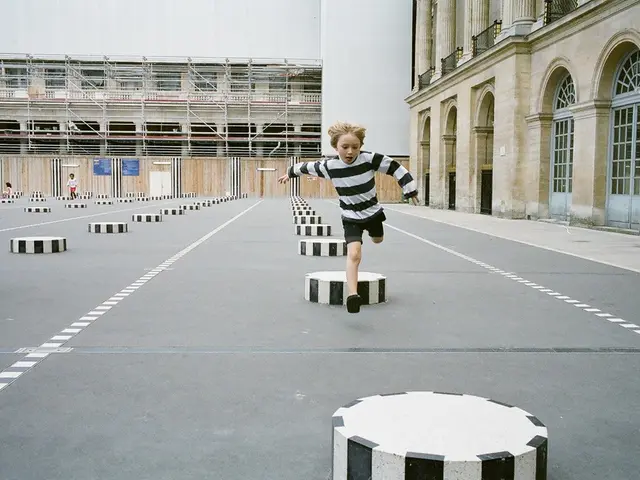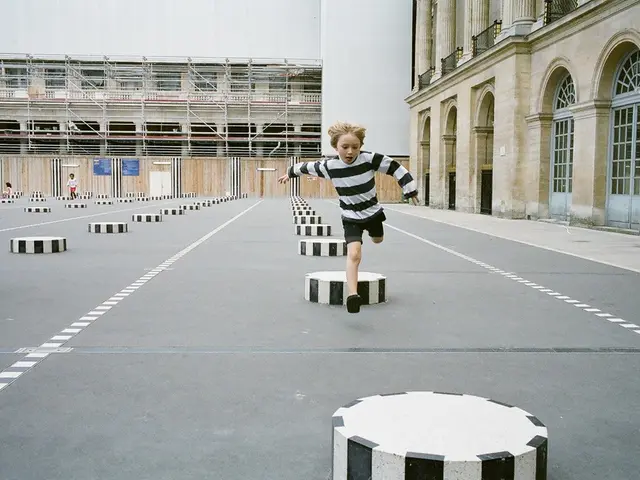Mental Health Improvement Journey: A Week-Long Plan for Inner Tranquility
In the spirit of Mental Health Month, which is currently being observed in Canada, we are inviting you to embark on a transformative journey towards better mental health with the 7-Day Mental Health Challenge. This initiative, designed by the Canadian Mental Health Association (CMHA), aims to help individuals reconnect with themselves, build daily habits, and discover moments of mental peace.
Mental health and mental illness, though related, are distinct concepts. Mental health, as defined by the CMHA, refers to a state of well-being that encompasses how people feel, think, and interact with others. It is influenced by experiences, emotions, thoughts, memories, and life circumstances, and good mental health means having the ability to cope with and respond to life’s stresses effectively.
On the other hand, mental illness involves changes in thoughts, feelings, behaviours, or communication that cause significant distress and may impair day-to-day functioning. Examples of mental illnesses include mood disorders, anxiety disorders, psychotic disorders, personality disorders, eating disorders, and substance use disorders. It's important to note that having a mental illness does not necessarily mean poor mental health, and conversely, a person without a diagnosed mental illness can still experience poor mental health.
The 7-Day Mental Health Challenge consists of daily practices designed to support positive mental health, most of which take under 10 minutes a day. Here's a brief overview of the daily practices:
Day 1: Sit in silence for 5 minutes, focusing on deep breathing. Day 2: Take a digital detox hour, disconnecting from screens and reconnecting with thoughts or loved ones. Day 3: Do something that nourishes you, such as taking a nap, walking, journaling, or making a healthy meal. Day 4: Perform simple acts of kindness, such as giving compliments or helping others, to boost mood and increase feelings of connection. Day 5: Journal for 5-10 minutes to help release emotions, improve emotional stability, and overall well-being. Day 6: Engage in physical movement, such as stretching, dancing, or walking, to help regulate emotions and lower anxiety. Day 7: Reflect on positive experiences and set intentions for the future to serve as a launchpad for continued mental health practice.
The challenge also emphasizes the importance of giving. Giving, whether it's through small acts of kindness or volunteering, can boost mood, reduce stress, and increase feelings of connection and purpose. Moreover, giving activates the brain's reward system, releases dopamine and serotonin, increases oxytocin, triggers endorphins, helps reduce feelings of loneliness and isolation, and lowers cortisol.
Remember, seeking help for mental health issues does not imply that there is something "wrong" with an individual. It's a brave step towards better mental health and well-being. For more inspiration on maintaining mental health and happiness, resources such as "How to Support Your Well-being: AI Tools for World Mental Health Day" and "Top 15 Books on Happiness" are available.
To bring the challenge into your daily routines and support the mental well-being of others, the 7-Day Mental Health Challenge printable is available for download. Let's commit to one intentional action a day to focus on positivity and well-being, not just during Mental Health Month, but all year long.
As a committed advocate for global change, Jacqueline Way, dedicates her career to philanthropic projects that create lasting impact and prioritizes mental health. By taking part in the 7-Day Mental Health Challenge, we can all contribute to a world where mental health is valued and prioritized, one day at a time.
- Mental health, as defined by the Canadian Mental Health Association (CMHA), is a state of well-being that includes how people feel, think, and interact with others.
- The global impact of mental health is significant, affecting the lives of countless individuals, from families to communities and the youth.
- The 7-Day Mental Health Challenge, driven by the CMHA, is designed to help people reconnect with themselves, build daily habits, and discover moments of mental peace.
- Giving, such as volunteering or small acts of kindness, can have a substantial impact on mental health, boosting mood, reducing stress, and increasing feelings of connection and purpose.
- Mental illness is distinct from mental health, involving changes in thoughts, feelings, behaviors, or communication that cause significant distress and may impair day-to-day functioning.
- Mental illness is worldwide, with examples including mood disorders, anxiety disorders, psychotic disorders, personality disorders, eating disorders, and substance use disorders.
- Good mental health means having the ability to cope with and respond to life's stresses effectively, and the 7-Day Mental Health Challenge focuses on practices to support this goal.
- In the podcast "Change, Kindness, and the Power of Scientifically Proven Happiness Habits," Jacqueline Way discusses her commitment to global change and prioritizing mental health.
- To supplement the 7-Day Mental Health Challenge, resources such as blogs on health-and-wellness, personal-growth, education-and-self-development, and mental-health can provide further inspiration and information.
- Mental health is essential for overall happiness, well-being, and personal growth, and by participating in the 7-Day Mental Health Challenge, each of us can contribute to a more compassionate, mentally healthy global community.




